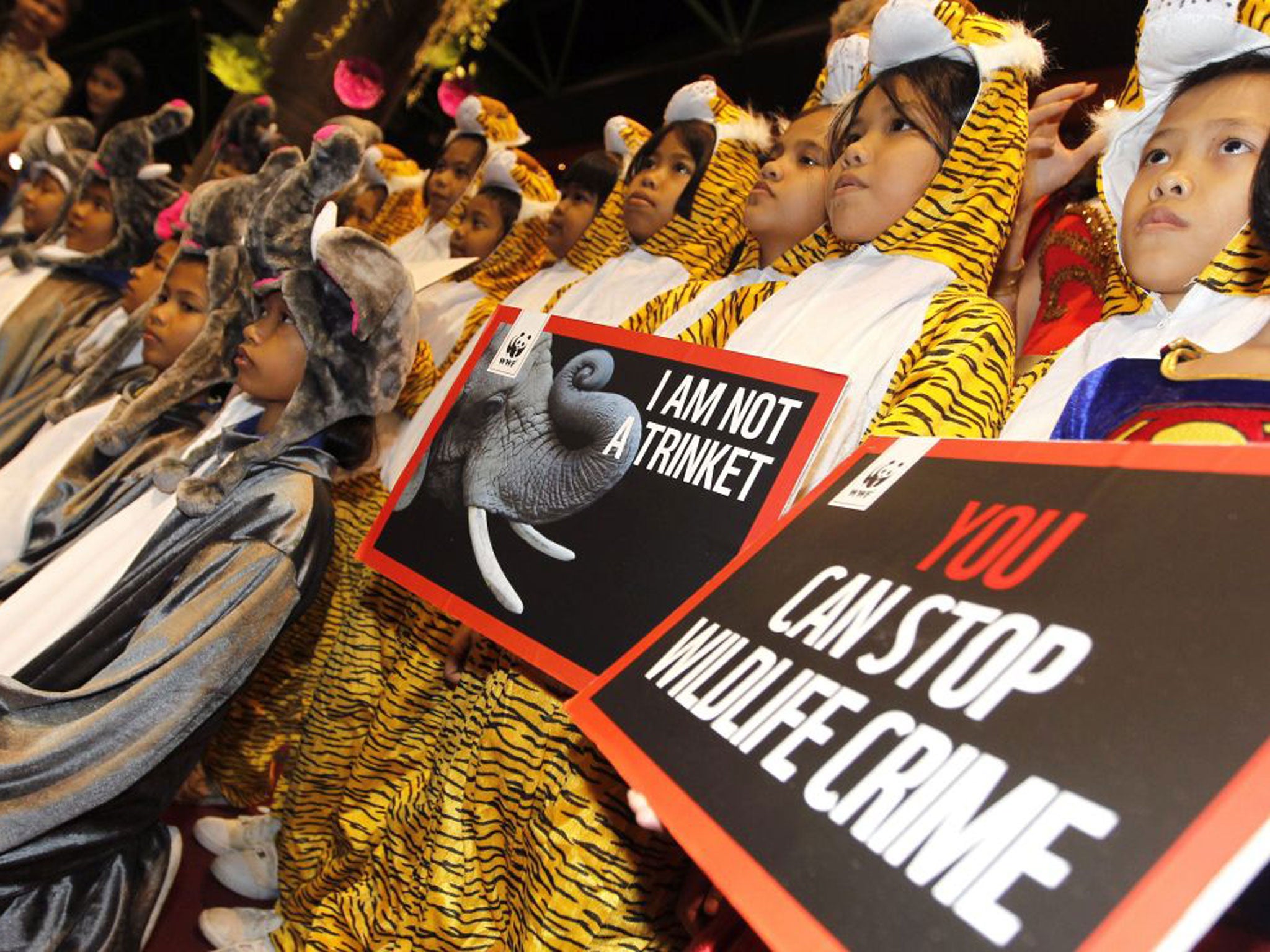
A global push to halt illegal ivory trading that leads to the slaughter of 30,000 elephants a year was backed by Prince William today.
Amid mounting international pressure to confront the market for illegal ivory in Thailand, the country will now introduce legislation in a bid to halt domestic trade.
Prime Minister Yingluck Shinawatra announced the measures today. "This will help protect all forms of elephants including Thailand's wild and domestic elephants and those from Africa," she said.
Campaigners say the various elephant populations are rapidly dwindling, with poachers undeterred by a ban on the international ivory trade that has been in place since 1989. Thailand permits its citizens to buy and sell ivory from animals that have died of natural causes inside the country, but campaigners say the system is routinely abused and that ivory from animals killed elsewhere is "laundered" through Thailand.
The announcement came ahead of the start of the Convention on International Trade in Endangered Species of Wild Flora and Fauna (Cites) conference in Bangkok today. The convention was opened with a video address from Prince William, who said the illegal trade in ivory from rhinos and elephants had reached a "shocking level".
But campaigners said it was not immediately clear how Thailand would go about ending its domestic trade. Carlos Drews, the head of WWF's delegation to Cites, said: "Shinawatra now needs to provide a timeline for this ban and ensure that it takes place as a matter of urgency, because the slaughter of elephants continues."
Thailand is second only to China in its unenviable position as the world's largest market for illegal ivory, campaigners say. They say there must be a global effort to clamp down on poaching or else see some of the planet's most iconic species wiped out.
Prior to the establishment of Cites in 1973, there was no international regulation of the cross-border trade in wildlife. Most of the agreements regulating the 35,000 animals under Cites' purview aim not to outlaw trade, but to ensure it remains sustainable.
Subscribe to Independent Premium to bookmark this article
Want to bookmark your favourite articles and stories to read or reference later? Start your Independent Premium subscription today.

Join our commenting forum
Join thought-provoking conversations, follow other Independent readers and see their replies